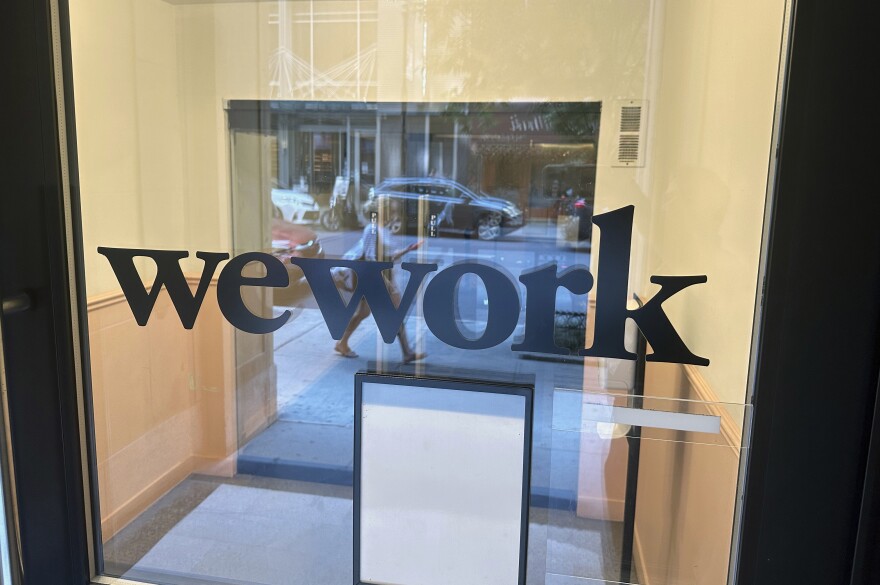WeWork, the once-buzzy startup that was valued at $47 billion at its peak, filed for Chapter 11 bankruptcy protection on Monday in federal court in New Jersey.
In itsbankruptcy petition, the company listed about $15 billion in assets and more than $18 billion in debt. It also has around $100 million in unpaid rent.
The company said 92% of its lenders agreed to a restructuring plan that would allow WeWork to operate during the reorganization, with many dozens of locations expected to close.
"As part of today's filing, WeWork is requesting the ability to reject the leases of certain locations, which are largely non-operational and all affected members have received advanced notice," said WeWork Chief Executive David Tolley in a statement.
WeWork's stock is down 99.2% from the start of the year, valuing the company at $44 million.
The bankruptcy filing marks a staggering new low for the company, which at its heyday won billions of dollars in funding from deep-pocketed investors for putting a Silicon Valley spin on the less-flashy business of subleasing office space to workers.
A vision for office work never fully realized
Erratic, flamboyant and sometimes-barefoot founder Adam Neumann launched WeWork in 2010. It expanded at a breakneck pace and attempted to revolutionize the way people work, a lofty goal that was never fully realized.
Neumann described WeWork as "the world's first physical social network," with office spaces featuring sleek furnishings, minimal design and, often, kombucha and beer on tap. He had hoped to draw both freelancers working remotely and office workers to WeWork sites, forming a global community that believed in "the energy of We" with an aspiration to "elevate the world's consciousness."
But the New Age-y declarations were toppled by a more mundane reality: an inability to pay its bills.
WeWork spent gobs of money remodeling office spaces around the world on long-term leases, with the goal of making a profit on very short-term subleases.
Problems arose, however, when it became clear that Neumann had no real plan for leasing its enormous portfolio of spaces many years out.
There was too much space on long-term leases and far fewer workers available to fill it. And so, the business model came crashing down, dragging Neumann down with it.
In 2019, after WeWork's valuation was reduced to $7 billion, WeWork laid off thousands of workers and Neumann was ousted. It followed Neumann's botched attempt to take the company public.
"WeWork claimed to have reinvented the business without ever reinventing it, that was the vanity that led it to become as big as it was," said Aswath Damodaran, a professor at the Stern School of Business at NYU. "And to me, WeWork will be Exhibit One in what happens when arrogance rises to the top and lets you believe that the rules don't apply to you."
An attempt to set WeWork on a new path
Following Neumann's resignation, former real estate executive Sandeep Mathrani took over the company and attempted to right the ship.
He cut costs and laid off employees as he steered WeWork through the pandemic, an especially punishing time for companies in the business of leasing out office space.
Mathrani even managed to take WeWork public, but earlier this year, he abruptly stepped down.
The company has been beset with trouble since then.
In August, WeWork said there was "substantial doubt" about its ability to stay in business due to mounting financial losses and a lack of cash.
It scrambled to renegotiate lease terms with landlords. But it faced increased competition in the world of short-term office space. And with many office workers choosing to work from home, the company failed to regain its footing.
In October, WeWork shares fell to an all-time low after the company admitted that it did not have enough cash on hand to make an interest payment on its debt.
Despite its reduced size since the Neumann years, WeWork still maintained more than 700 locations in nearly 40 countries, according to a Securities and Exchange Commission filing from June.
Copyright 2024 NPR. To see more, visit https://www.npr.org.








